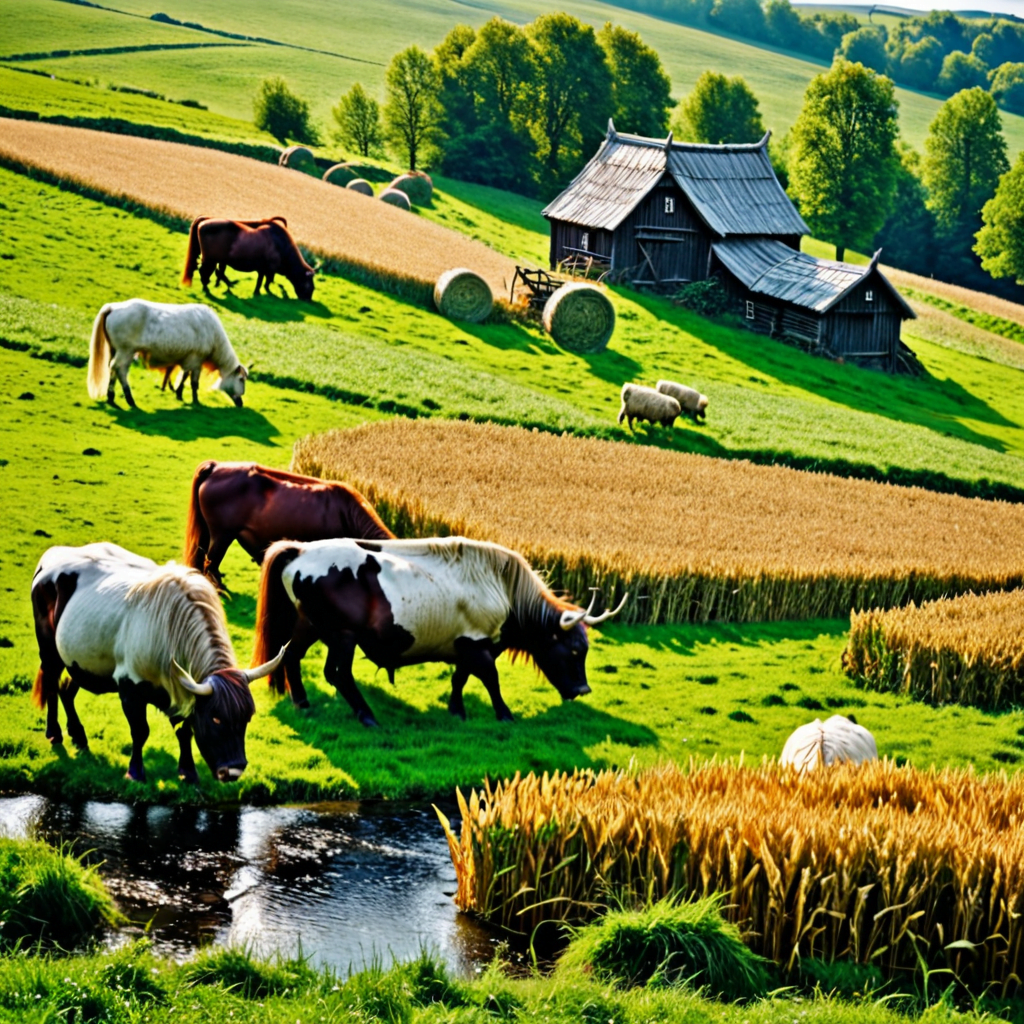The Influence of Norse Mythology on Norse Agriculture and Farming
Norse mythology, with its rich tapestry of gods, goddesses, and legends, had a profound influence on various aspects of Norse life, including agriculture and farming. Let’s delve into how these mythical beliefs shaped the practices and beliefs of Norse people when it came to working the land.
The Role of Norse Mythology in Agriculture
In Norse mythology, the gods and goddesses were intimately connected to the natural world, with deities like Freyr, the god of fertility and prosperity, holding particular significance for agriculture. Freyr was associated with bountiful harvests, good weather, and the overall success of the crops. Farmers would pray to Freyr and make offerings to ensure a fruitful season.
Sacred Rituals and Agricultural Practices
Rituals and ceremonies played a vital role in Norse agricultural practices. Offerings were made to the land spirits or álfar (elves) to seek their protection and blessings for the crops. This reverence for the supernatural beings dwelling in nature reflected the Norse belief that a harmonious relationship with the land was crucial for agricultural success.
The Influence of Seasons and Nature
Norse mythology also emphasized the cyclical nature of life, death, and rebirth, mirroring the agricultural cycle of planting, growth, harvest, and renewal. The changing seasons were intricately linked to the stories of the gods and the cosmic order, guiding farmers in their planting and harvesting schedules.
Folklore and Sustainability
Additionally, Norse folklore and myths often contained practical knowledge about farming techniques, animal husbandry, and land stewardship. Tales of Jotunn (giants) challenging the gods mirrored the constant struggle of farmers against the forces of nature, further illustrating the importance of resilience and adaptability in agriculture.
FAQ: The Influence of Norse Mythology on Norse Agriculture and Farming
What role did Norse mythology play in agriculture and farming?
In Norse mythology, agricultural practices were often associated with the gods and various nature spirits. For example, the god Freyr was linked to fertility, agriculture, and good harvests, while the goddess Sif was connected to grain and fertility of the earth. These mythological beliefs influenced rituals, offerings, and practices aimed at ensuring bountiful harvests.
How did Norse mythology shape farming traditions?
Norse mythology influenced farming traditions through rituals such as blót, which were sacrificial offerings to the gods for a successful harvest. Farmers sought blessings from deities like Freyr and Thor to protect their crops from pests and ensure fertile soil. These traditions reinforced a spiritual connection between farmers and the land they cultivated.
Did Norse mythology impact agricultural festivals?
Yes, Norse mythology had a significant impact on agricultural festivals. The most prominent example is the celebration of the harvest festival known as “Hákonarmessa,” dedicated to King Haakon the Good and honoring the gods for a prosperous harvest. These festivals often involved feasting, rituals, and ceremonies to show gratitude to the deities for their blessings on the harvest.





